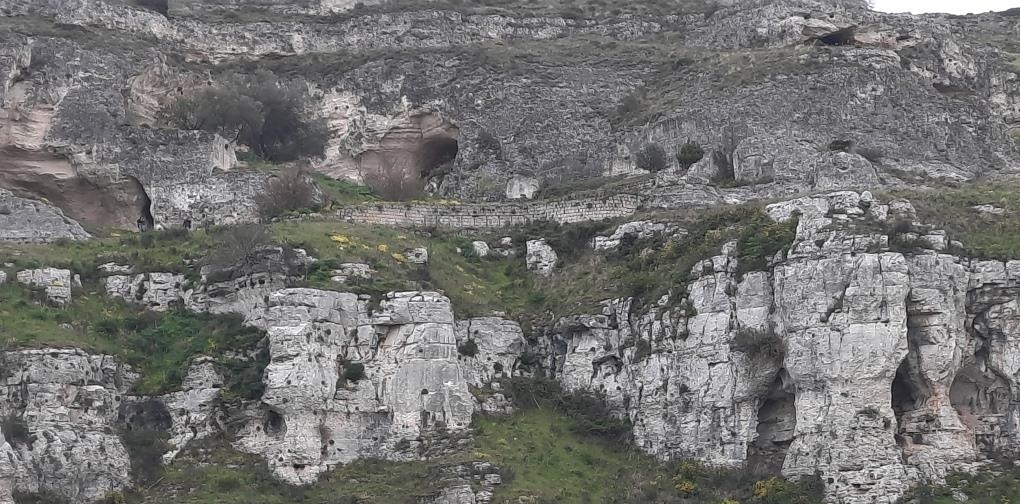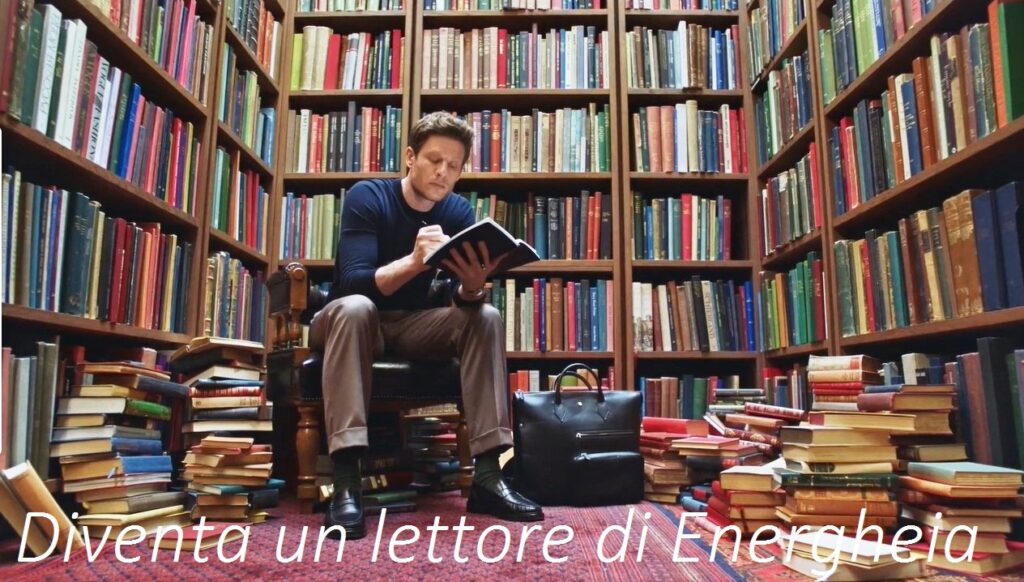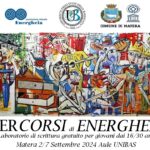Lanzy’s Licorice and Such, Ben Eckstein
Finalist Energheia Israel Award 2023
Even in Auschwitz people laughed at Lanzy, teased him, and pushed his buttons, just like they did everywhere else his whole life.
Most prisoners were engulfed in a fatigue too comprehensive to undertake the effort of producing jokes, but there was always someone who got their power from putting another down, and Lanzy was an easy target.
They were all skeletons, but he, somehow, kept a little belly, no matter how hungry and empty it really was, the belly hung on.
Some scrag would whisper late at night, just loud enough for others to hear,
“It’s always the last point two pounds that are the hardest to shed off, innit?
And the skeletons would crackle their teeth and then depress their chuckles, to not draw the attention of the guards.
“You should volunteer to unload trains,”
another starveling would offer,
“Or clean the bathrooms, that weight would come right off.”
Lanzy never answered, he would sink inside his coarse grey-blue striped uniform and roll over in his bunk if it was possible, and if not, he would just pull his shirt over his head and drift off in his mind to better times long gone.
Whatever he needed to do to not engage, that was always best, then it would only last a minute or two before everyone was fast asleep anyway, overcome with the deprivation of the day.
Lanzy would waft into a darkness of his own, which was a void but also a kind of refuge and privacy offered nowhere else in the camp, where you still existed, but with none of the pain that came with consciousness.
Sometimes the whole block of bunks would fill with the smell of bread, cakes, lemon bars and chocolate smeared rolls. He would hear his mother ordering Pikka around with the cleaning, admonishing that the Sabbath was coming and rushing her to get everything done in time. Then he would feel a gentle tap on his shoulder, turn, and Pninna was standing behind him, arms stretched out with the first of the baked goods fresh out of the oven, hot and steaming in her little hands. She would smile at him, and they would sneak off to the attic to eat together and dream of the day they would get married and have a home of their own.
Pikka moved in with her daughter Pninna right after his Bar Mitzva to work in the house and help his parents with chores and the cooking, and Pninna had his heart from the start. Her ever bright smile struck his insides like an arrow and made him feel like he was bleeding internally and in danger of dying, but her big brown eyes, sad in contrast, puzzled him, and he wanted to hang on and survive his injuries, overcome them for her sake, so he can figure out her pain and mend it, make her eyes smile like her teeth did, if he could only understand how.
Lanzy was one of the few in the camp with a desk job, translating Hebrew letters, notes or whatever the guards would find into German. He learned of news, personal affairs, gossip, secrets of the resistance, bribes exchanged, prayers, wills, and last wishes. He would carry inside him all this, forbidden by the guards to disclose anything to the other prisoners with the threat of death if he did. The guards would plant false notes and letters so you could never be sure what was real and what was made up, and would double, even triple check his work with the other prisoners that translated for them, and if some discrepancies emerged, it was your head. The prisoners knew Lanzy carried all this inside him, massages from loved ones, instructions on how to retrieve hidden treasures, buried in a hast somewhere, word from the front, communiqué from back home, and that he would die if he told them any of it. It created a chasm between him and them.
There were rummers that Lanzy from time to time would pass on something to someone, if he felt it was of great importance. There were prisoners that would sometimes stand up for him and tell the others to back off, so people had their suspicions that they must owe him a favor. Truth was that Lanzy would tell anyone any bit of information that he had, but only very rarely did all the pieces would fit
together, and he could match what he knew with a prisoner the information was relevant for, and be sure, as much as he could be, that it was not a trap set for him by the guards. As for general news, he figured that it gets around well enough without him, so he didn’t bother. No one would believe what he had to say anyway, they would claim he made things up, that he’s trying to scare them, or cause trouble, so he kept his mouth shut. It wasn’t the threat of death, he stopped caring about that a long time ago, when he read a letter of a man from his hometown, that said it was all gone, burned to the ground, and everyone was dead. He knew then that he would never see his wife again, that she was murdered soon after the men were taken away.
The only thing keeping him going was a promise he made to Pninna the night they were separated. That he would survive the war, come back to her, and they would move to a big city and open a bakery like they always dreamed about when they were kids. It would be a beautiful place, full of light and welcoming, a sweet smell of baked goods would always hang in the air and there would be fresh coffee brewing, and milk and sugar at hand, there would be shelves with candy in jars of all sorts for the kids to choose from, lollipops, bubblegum, candy bars and caramels, marshmallow ,nougat, mints, chocolate, taffy and black and red licorice, in twists and wheels. He held her little hands in his, the night the soldiers were coming, and they looked at each other as if, perhaps, for the last time, and out of nowhere, Pninna started laughing, her whole body shaking.
“What is it, what’s funny?”
he asked,
“The name,”
she said,
“The name for the bakery, I just thought of it.”
“Well, what is it?
He said and Pninna making an enormous effort to tamper her bursting giggles long enough to speak, finally managed to utter, that she would tell him if he promised to call it just that, no arguments.
“I promise.”
he whispered.
“You call it, Lanzy’s Licorice and Such,”
she said and they both laughed together, and he saw in her eyes a shimmer and twinkle and there was laughter in them just like in her teeth. They hugged tightly, and soon he could feel her tears roll down on his neck, she was shaking, and the laughter was gone. The house door was kicked in, and the room was swarming with soldiers who ripped them apart and took him away, and that was the last time he saw her.
His Hebrew was immaculate, when he first learned it, his father brought him a tray with the letters printed on it and it was smeared with honey, for him to run his finger on it as he traced the shape of each letter and then taste the sweatiness of his work. When he was familiar with the shapes, his father arranged all the letters made of cookies and when Lanzy identified the whole alphabet correctly and in order he was allowed to eat them all. His father taught Hebrew to all the kids in the area with the same sweet methods, but most of them did not have Lanzy’s brain or belly. He was different. His father was an industrialist who did very well and owned several factories, but loved teaching, had a gift for it, and did it as a mitzva and service to the community.
One day in synagogue his father promised the congregation a new Torah scroll, and later blew Lanzy’s mind when he explained that a Torah scroll contains three hundred and four thousand and eight hundred and five letters, all of which must be duplicated precisely by an expert’s hand, without a single mistake, an effort which may take as long as a year and a half. Lanzy made his dad promise to let him see how it gets done, and at the studio of the sofer, the scriber of the scroll, Lanzy was so taken with the work, that his father ask if the boy could come back to observe and learn a bit more. The sofer, not knowing what a nudnik he just invited into his life, agreed. Day after day Lanzy would cut a straight line to the studio right after school, overstaying his welcome most days. He was quiet, seating on a chair in a corner, but his gaze was intense and quizzical and distracted the sofer and he would lose his fucus, so he’d show Lanzy some minor technic and seat him facing away on a vacant table to practice. It was soon apparent that the boy had talent and the sofer gave him a little more to do with each passing day. By the time the Torah scroll was finished the sofer couldn’t remember how he ever did any of it without him. Lanzy dedicated himself to perfection and was soon known for the quality and beauty of his penmanship, and the orders came pouring in, for an ornamental blessing to frame and hang on a wall, mezuzah scrolls, tefillin, a marriage ketubah and its evil twin, gittin, divorce documents, and eventually his own Torah scroll. At first, he worked with the sofer in the studio, but soon his father set him up with his own place and he was off and running. Not really running, more off and sitting on his own all day in his workshop, and that was a problem. He never spent time outdoors, didn’t make friends, never ventured to partake in the hormonal mayhem of adolescence and chase a ball or a girl in the yard, didn’t pay notice to the nuances of fitting into a social order, or care much where his place was in it. He was submerged in an inky Hebrew universe of his own, insolated in its orbit.
His overflowing talent, generating him a fortune and accolades, devalued the other boys in comparison, and it was humiliating for them to be eclipsed by him, a silver spooned ink-stained fat boy, that didn’t give them the time of day.
This stumping of their budding egos, egos so fragile, like chicks in the nest starving for a morsal of social recognition and validation to strengthen their resolve, to build up courage so they could spred their wings and soar into the horizon of who they might become. Lanzy’s growing prestige and allure boxed them in the second best market and the only way forward was to lash out in rage against the prick.
The boys picked on him at school, threw rocks at him as he made his way home after, and smash a rotten apple or a browning banana on his face on the way to his studio in the afternoon. They rolled him in the mud, stung him with ugly words, they kicked, punched and roughed him up so much that he was perpetually sore and bruised, and kept a change of clean clothes at the studio to change into and a cold box with ice for the pain. Thank god for Pninna, his angel. Always there to patch him up, to encourage with kind words, to believe in him and their dream of the future. He would have broken in half from the strain and stress of work and the constant insults and abuses if she didn’t put him back together with a gentle kiss at the end of trying days. She was still with him now, in the camp, visiting him every day, lending him her strength to make it through to another tomorrow. He’d ask her what’s the point of getting out of here, what’s the point of opening the cafe if she’s gone, why go on, why hope for a brighter tomorrow when all his joy has left this earth? Such dark thoughts, she‘d whisper in his ear, such thoughts have no place in your head, you must go on for both of us now, you promised there would be fresh bread, baked goods and coffee, and the kids would have their candy, and there would be smiles and jubilation and the air thick with joie de vivre, you promised me that.
Lanzy knew the rumors, read the reports that came to his desk in growing frequency, could even hear battle noises in the distance, and still he thought it impossible that liberation was coming. When the guards reassigned him to an emergency census of the prisoners as they started moving them out of the camp and to another unknow location, deeper inland, he knew something was afoot. They kept him working on their lists through the night, but when airplanes were suddenly circling above the camp the next morning, the guards scattered and left the prisoners to themselves. He wondered around not sure if he should run or stay, when Russian soldiers tore through the wire fences with their tanks and one of them stopped right in front of him and a young man hopped off and offered him a piece of black bread, which he was afraid to accept, but the young man insisted, saying
“sladkiy Borodinsky, sladkiy Boroditsky,”
and pantomiming eating the bread and smiling to demonstrate how good it tasted.
That December in Berlin was colder than usual, and a blanket of snow covered the city. Lanzy added dark hot chocolate and cinnamon sprinkled eggnog to the holiday menu and the line was out the door. The café was decorated with pine wreaths and lights, and a Hanukkah menorah was glowing with seven candles burning next to a special scroll Lanzy prepared on a large parchment and placed on the wall with the story of queen Ester written in intricate and elegant type. He jumped behind the counter to help his staff when the crowd swelled during rush hour, and his guests would tell him how much they loved coming to his cafe and what a miracle his food was. He picked out a marshmallow dipped in caramel from a jar on a shelf and offered it to a shy girl clinging to her mother’s skirt, she took it but then averted her eyes to avoid his. Her mother admonished her to say thank you, so she stepped out a bit, said thank you and curtsied, and Lanzy and her mother laughed.
“What’s your name?”
Lanzy asked, but the girl ducked back behind the curtain of her mother’s dress and would not answer.
“Her name is Eva,”
her mother said,
“This is her favorite cafe.”
The next day was the eighth day of Hanukkah and Lanzy was baking since dawn and was now pottering around before the first of his staff would join him to brew the coffee, arrange the tables and open up. He stopped by the menorah and lit up all the candles and watched as their light dances across his scroll, throwing tiny shadows back and forth across the words. He got a small ladder and a tablecloth and climbed up to the chandelier at the center of the room, he wrapped it around the
base and tightened a knot to secure it there and slipped his head into a noose he fastened on the other end. Pninna was saying she’s so proud of him and everything he accomplished so quickly. Thank you darling, she said and kissed him softly, it’s everything we dreamed of.






